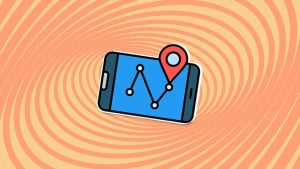It’s the little things that make the big differences. Think about much better breakfast is in bed rather than at the kitchen table, or the difference 5 minutes of sunshine can make to your day. Google understands this perfectly and has started testing a new feature for Google Maps that will make a big difference.
Whenever your GPS is telling you where to go, you’ll normally hear instructions like, “In 500 feet, turn right,” or “Turn right onto … street.” Instructions like these are accurate, but they’re cold and they make it abundantly clear that it is a computer is talking to you. For Google Maps users, these unemotional prompts may soon become a thing of the past. According to some Twitter users, Google is testing out a new landmark-based direction feature.
Turn left after Burger King
Think about it. Whenever a person is giving you directions, they’ll normally mention a landmark that you’ll see and tell you to either turn before or after it. Google is testing out a way to incorporate this human behavior into Google Maps. Obviously, that’s a major challenge. If Maps is supposed to sound human, it’ll have to refer to the landmarks that matter to the driver and they could be different all over the world.
According to Google, landmark-based directions is just one of several ways the company is trying to improve Google Maps’ guidance systems. No word yet on when this update or the other features the search giant is currently testing will roll out to all app users.



